Not everyone is content with the same old stocks, bonds, ETFs, and mutual funds in their retirement accounts. Those of us who like to color outside the lines can create a self-directed IRA to invest in, well, almost anything.
At a cost, of course. While most conventional IRAs are free nowadays, self-directed IRAs (SDIRAs) come with fees, and they’re not trivial either.
If you want more alternatives in your portfolio than a ‘90s grunge fan, read on.
The Best Self-Directed IRA Providers
The market for self-directed custodians isn’t enormous. A handful of self-directed IRA providers dominate the market.
As you explore the best SDIRA options, keep the following providers in mind.
Best Overall: Rocket Dollar
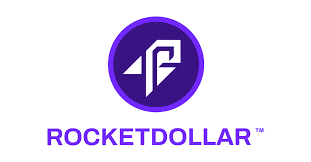
Accounts Offered: Traditional IRA, Roth IRA, Solo 401(k)
Checkbook Control: Yes
Fees: Core plan: $360 one-time set-up fee then $15 per month; Gold plan: $600 setup fee then $30 per month
A relative newcomer, Rocket Dollar was only founded in 2018. And that’s the worst thing I have to say about it.
To begin with, Rocket Dollar offers a simple, streamlined process for both creating an account and managing your investments. That starts with them actually creating an LLC for you, so you have “checkbook control” over your investments.
Historically, if you wanted to invest through an SDIRA, a custodian had to oversee and approve every single transaction you made. That includes buying and selling investments, but also managing them (such as paying contractors for repairs on rental properties owned by your SDIRA). Talk about a pain in the, uh, neck.
So more forward-thinking SDIRA custodians started letting investors create an LLC to manage their own investments. You tell the custodian to invest all your contributions in this LLC, owned by your IRA, and you open a bank account for the LLC so you can then invest in whatever you want. Rocket Dollar takes this concept further by building this entire process into their silky smooth platform.
They’ve also partnered with providers in the alternative investing space, letting you invest in them with just a few clicks. For example, you can invest near-instantly in Farm Together to buy shares in farming land, Gemini for cryptocurrencies, and OneGold for precious metals.
Rocket Dollar doesn’t require a minimum investment, but they do charge a relatively high one-time setup fee of $360. However their ongoing fees are flat and lower than average at $15 per month.
Alternatively, they do offer a premium option, with a $600 one-time setup fee and $30 monthly fee. This option includes Rocket Dollar helping you set up that LLC, four free wire transfers per year, priority client support, expedited transfers, and tax filing for 1099-R and Form 5500.
Sweetening the pot, Rocket Dollar offers solo 401(k) accounts as well, which many custodians do not.
Best for Precious Metals: Red Rock Secured

Accounts Offered: Traditional IRA, Roth IRA, SEP IRA, SIMPLE IRA, Solo 401(k), TSP
Checkbook Control: Yes
Fees: $125 to $300 per year for physical storage.
Red Rock Secured specializes in precious metals, including gold, silver, palladium, and platinum. They advertise that most of their customers pay no fees for life, although they don’t publish a fee schedule on their website.
If you opt to store physical gold, silver, or other metals at one of their storage facilities, you’ll pay a storage fee between $125 and $300 per year. Alternatively, you can ship metals to yourself to hold at home or at a safety deposit box at your bank. That option adds a layer of privacy between your IRA and the IRS.
Although your SDIRA can’t hold precious metals directly, you can create an LLC and direct your IRA custodian to invest the money in your LLC. Then you simply buy the metals with your LLC.
Red Rock Secured offers a buyback program as well, allowing you to liquidate your precious metals quickly and safely if needed. Note that Red Rock Secured does have a minimum investment of $1,500.
Best for Investor Experience: Alto
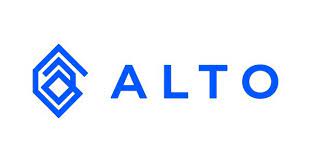
Accounts Offered: Traditional IRA, Roth IRA, SEP IRA
Checkbook Control: Yes
Fees: Starter: $10 per month plus investment fees; Pro: $25 per month plus investment fees; CryptoIRA: 1% of each transaction. All accounts charge outbound wire fees ($25) and an account closure fee ($50).
Like Rocket Dollar, Alto is a relative newcomer that focuses heavily on a smooth user experience. They also follow the flat monthly fee pricing model to keep the pricing simple.
They’ve built their own network of alternative investment partners for streamlined investing. These include companies like AcreTrader, AngelList, Masterworks, Republic, and more.
Or you can open an SDIRA LLC for checkbook control over your investments. But it requires a Pro plan with a higher monthly fee.
Unlike many SDIRA providers, Alto does offer SEP IRAs. These often prove the best IRA option for high-earning self-employed people.
Alto also offers an account specifically for cryptocurrency investing, called (what else?) Alto CryptoIRA. These accounts are priced differently, with no monthly fee but a 1% transaction fee when buying or selling crypto.
Best for Client Support: Equity Trust Company
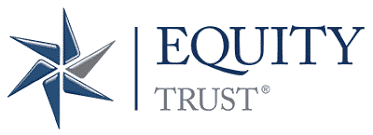
Accounts Offered: Traditional IRA, Roth IRA, SEP IRA, SIMPLE IRA, Solo 401(k), ESA, HSA
Checkbook Control: No
Fees: Setup fee: $50 online or $75 by mail; annual fee: based on a sliding scale, starting at $225 for accounts with balances up to $14,999 and as high as $2,250 for accounts with over $2 million.
Equity Trust Company ranks among the oldest SDIRA custodians operating today, having launched in 1974. It also boasts over 213,000 clients with over $34 billion in assets.
In particular, Equity Trust Company is known for its stellar customer service. They help clients navigate the tricky waters of self-directed IRAs, with all their risks and esoteric tax rules.
The custodian also offers more account options than most competitors. These include self-employed accounts like SEP IRAs, SIMPLE IRAs, and solo 401(k)s, and other tax-sheltered accounts like health savings accounts (HSAs) and Coverdell education savings accounts (ESAs).
Unfortunately, Equity Trust Company comes with two significant drawbacks. First, they don’t allow checkbook control with SDIRA LLCs, which is a nonstarter for many investors. Second, their sliding scale fee structure can price out investors with higher account balances. You can see their full pricing table on their website.
Best for Real Estate Investing: uDirect
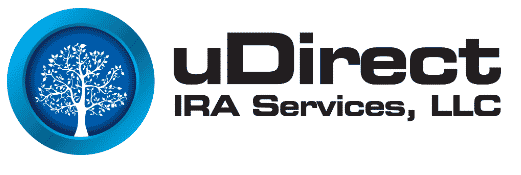
Accounts Offered: Traditional IRA, Roth IRA, SEP IRA, Solo 401(k), HSA
Checkbook Control: Yes
Fees: Setup fee: $50; annual fee: $275; transaction fee: $35; precious metal storage fee: $8 to $18 per month.
Although their website lacks the gloss of disruptive newcomers like Rocket Dollar and Alto, uDirect has specialized in SDIRAs for real estate investors since 2009. They’ve since expanded to offer solo 401(k)s and HSAs as well.
The company offers modest and transparent fees, and makes it easy to invest through an SDIRA LLC for checkbook control. That’s crucial for real estate investors managing rental properties, which require frequent deposits, expense payouts, and so forth.
You can also easily invest in equipment leasing, tax liens, promissory notes, judgments, and even oil and gas investments through uDirect. And if you like the idea of owning physical precious metals, uDirect offers secure storage for an additional monthly fee.
Best for International or Financed Real Estate: Pacific Premier Trust

Accounts Offered: Traditional IRA, Roth IRA, SEP IRA, SIMPLE IRA, Solo 401(k), ESA
Checkbook Control: Yes
Fees: Minimum annual fee: $750, with a sliding scale percentage of assets under management; account closure fee: $225; plus wire and other fees.
Formerly known as PENSCO, Pacific Premier Trust has offered self-directed IRAs since 1989. They specialize in real estate but allow many other types of alternative investments.
Pacific Premier Trust maintains relationships with a wide range of investment property lenders and helps you line up financing for properties owned under your SDIRA LLC. Given the low contribution limits on IRAs, few investors can afford to buy properties in cash with their IRA balance alone, making that financing help a huge boon.
The custodian also has extensive experience with international real estate. For any investors looking to add international properties to their portfolio, Pacific Premier Trust can help smooth the process.
Unfortunately, they charge high fees for their specialty expertise. They charge 0.30% of the first $1 million in assets under management, 0.15% for balances between $1 million and $5 million, and 0.10% for balances over $5 million. The minimum annual fee is $750 — yikes. You can view their full fee schedule on their website.
Pacific Premier Trust also requires a minimum balance of $5,000 for accounts that hold real estate, although I’ve never known anyone to buy properties with less than $5,000 in the deal, so that’s probably not a dealbreaker.
Best for Real Estate Crowdfunding: Millennium Trust Company

Accounts Offered: Traditional IRA, Roth IRA, SEP IRA, SIMPLE IRA, Solo 401(k)
Checkbook Control: Yes
Fees: Annual maintenance fee: $100; additional fees based on number and types of holdings.
Let’s get one thing out of the way early: Millennium Trust Company has a complex fee structure that isn’t user-friendly if you plan to hold many different types of assets. But if you only want to invest in real estate crowdfunding, it’s hard to beat Millennium Trust Company.
To begin with, they partnered early on with Fundrise, one of the most established and trusted real estate crowdfunding platforms on the market. Millennium charges a flat $125 per year if you invest in Fundrise, which is downright cheap. And if you invest $3,000 in a single year, or keep a Fundrise balance over $25,000, Millennium waives the fee entirely.
If you prefer a different crowdfunding platform, Millennium charges more but still less than other self-directed IRA custodians. They charge the $100 annual maintenance fee plus $75 for the first crowdfunding platform, $150 for two, or $200 for three or more. So you could invest in a dozen real estate crowdfunding investments and pay a flat $300 per year.
For passive investors just looking to invest in real estate crowdfunding in their SDIRA, Millennium Trust Company
Best for Cryptocurrencies: BitIRA
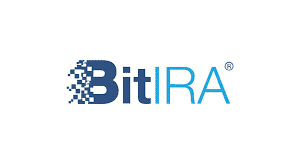
Accounts Offered: Traditional IRA, Roth IRA, SEP IRA, SIMPLE IRA
Checkbook Control: N/A
Fees: Setup fee: $50; annual fee: $195; offline storage fee: 0.05% of assets per month.
BitIRA may not offer the most cryptocurrencies of any SDIRA provider, but they charge less than their main rival, and they provide airtight security.
And I mean “airtight” literally. The company can secure your crypto assets offline in cold storage.
As of mid-2022, BitIRA offers the following cryptocurrencies:
- Bitcoin
- Bitcoin Cash
- Ethereum
- Ethereum Classic
- Litecoin
- Chainlink
- Zcash
- Stellar Lumens
- Aave
- Basic Attention Token (BAT)
- The Graph (GRT)
- Livepeer (LPT)
- Maker (MKR)
- yearn.finance (YFI)
- Decentraland (MANA)
- Dai (DAI)
- Uniswap (UNI)
If you want more crypto options, check out BitcoinIRA, which charges higher fees but offers over 60 cryptocurrencies.
I don’t love that neither BitIRA nor BitcoinIRA publishes their pricing on their websites. Tisk tisk.
As a final note, BitIRA requires a minimum contribution of $5,000 to open a self-directed IRA.
Methodology: How We Select the Best Self-Directed IRA Providers
We considered a range of factors to pick the top self-directed IRA providers outlined above.
Do your own due diligence, however, to dive deeper into a particular provider before opening an account with them.
Pricing
Sure, it’s nice to save money on taxes with a tax-advantaged retirement account. But what’s the point if you end up paying just as much in fees as you saved in taxes?
I kept fees front of mind in evaluating all of the SDIRA options on the market. Beyond total cost, the transparency and complexity of the pricing also matter for customers. I noted above where providers beat the pack — or woefully underperform.
Checkbook Control
Like dodging tax bullets, part of the point of an SDIRA is the flexibility to invest your way, with no constraints. It matters whether self-directed IRA custodians allow you to invest in your own LLC and how easy they make that process.
It particularly matters for real estate investors looking to flip houses or buy rental properties. They need full checkbook control to buy, manage, and sell properties effectively.
Ease of Use
Self-directed IRAs come with enough complications from IRS rules without a difficult user experience making them even harder to navigate.
The newer, more “disruptive” SDIRA providers above go the extra mile to streamline the process of opening an account and managing your investments. Because if you can’t figure out how to use a service, it doesn’t provide any value whatsoever.
Types of Tax-Advantaged Accounts
Every SDIRA provider offers traditional and Roth IRAs. But not every provider offers SEP IRAs, SIMPLE IRAs, solo 401(k)s, HSAs, or ESAs.
We gave preference to custodians that provide more account types, and highlighted them so you know at a glance which accounts each provider offers.
Specialization
If you want to invest in a broad range of alternative assets, you want a generalist custodian that does everything pretty well. But if you have one specific type of investment in mind, you want a specialist who drills deep into that exact asset.
Specialization includes services offered, flexibility within that sphere, and pricing for it. The best SDIRA custodian for real estate crowdfunding is not the best for cryptocurrencies, and vice versa.
Self-Directed IRA FAQs (Frequently Asked Questions)
If you don’t have any questions about self-directed IRA companies then you know more than I do.
It’s an extremely complex niche in the world of tax-sheltered accounts, and you’ll need expert help when creating an account. But here are a few of the most common questions to set you on the right track.
Who Should Open an SDIRA?
In a word: experts.
If you have subject-matter expertise in a specific field, such as real estate investing, you should consider opening a self-directed IRA. But only expert investors should open SDIRAs.
Otherwise, you’re better off opening a free standard IRA with a traditional investment brokerage and investing in index funds.
Can I Roll Over My Current Retirement Account to an SDIRA?
Yes, you can roll over funds from your existing IRA, 401(k), 403(b), or other retirement account to a self-directed IRA. But not all custodians accept rollovers from all account types, so double check with them before liquidating any assets.
What Are the Contribution Limits on Self-Directed IRAs?
The contribution limits are the same for SDIRAs as they are for traditional and Roth IRAs. You can contribute up to $6,000 per year in 2022, or $7,000 if you’re 50 or older.
Can I Use an SDIRA to Buy a Home?
You can’t have personal gain from your self-directed IRA assets while they remain invested. That includes primary residences, second homes, and vacation rental properties.
However you can buy investment properties with your SDIRA, and you can later transfer them to your personal name as a distribution if you want to move in. That distribution will be taxable for traditional IRAs, but not Roth IRAs.
How to Choose the Best Self-Directed IRA
The best self-directed IRA account for you depends on the investment options you personally want.
Many SDIRA providers partner with leading alternative investment companies, such as private equity fund specialists, real estate crowdfunding platforms, precious metal purveyors, or hedge funds. Or you can pave your own path and create an LLC for checkbook control over your investments.
Before taking the plunge, speak with a financial advisor to get personalized investment advice. Self-directed IRAs come with complex rules, and the last thing you want is to accidentally trigger a taxable event with your allegedly tax-free individual retirement account.